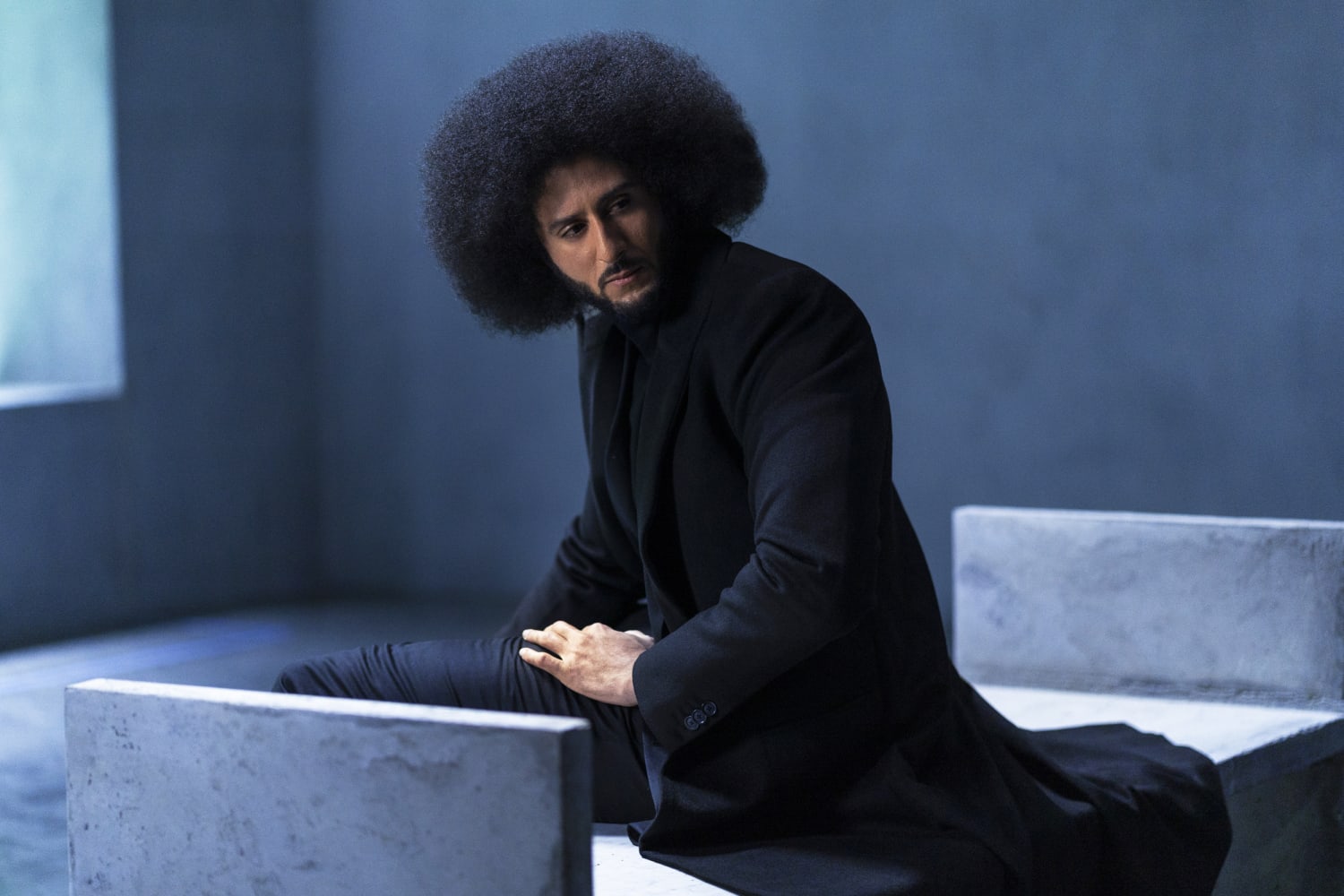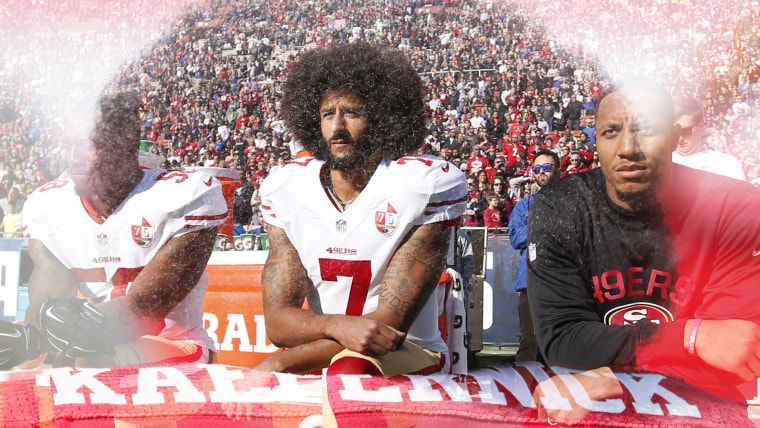In his new coming-of-age Netflix series, “Colin in Black & White,” former NFL quarterback-turned-civil rights activist Colin Kaepernick is running deep into controversy, this time by equating professional football’s draft process with modern-day slavery.
As the first episode opens, a flurry of football players, portrayed by Black actors, are seen charging across a field in front of white coaches.
“What they don’t want you to understand is what’s being established is a power dynamic,” Kaepernick, dressed all in black, says.
“Before they put you on the field, teams poke, prod and examine you searching for any defect that might affect your performance,” he continues. “No boundary respect. No dignity left intact.”
The scene transitions to an open market in America’s slavery era, where the players, shirtless and shackled, are then sold before one of the slave owners shakes hands with a football coach — merging past with present.
The juxtaposition quickly caught the attention of viewers after Netflix made the limited series available for streaming Friday, and Kaepernick asked on Twitter, “What have been your favorite scenes and messages from the show?”
Some on Twitter praised the scene for being “in your face and completely accurate.”
But others called it an unfair comparison.
“Slaves had NO choice whereas all these men FROM ALL RACES AND CULTURE BACKGROUNDS chose to go to the combine for a chance at becoming pro and make millions,” one Twitter user wrote.
Rep. Burgess Owens, R-Utah, who played in the NFL in the 1970s and ’80s, voiced his own disdain for the scene.
“How dare @Kaepernick7 compare the evil endured by so many of our ancestors to a bunch of millionaires who CHOSE to play game,” Owens, who is Black, tweeted.
In recent years, the NFL has faced criticism for having a majority of players who identify as Black but few Black head coaches and general managers.
Kaepernick was a second-round draft pick in 2011 and helped lead the San Francisco 49ers to the Super Bowl in 2013, establishing himself as one of the league’s most dynamic quarterbacks.
In 2016, his career was upended when he knelt during a preseason game to quietly protest racial injustice and police brutality in the United States. His decision set off a wave of similar demonstrations by other players and by athletes in other sports, and kicked off a larger discussion about racial inequities in American society.
Kaepernick, who accused the NFL of blackballing him and settled a “collusion grievance” with the league in 2019, has since turned his attention to civil rights causes as well as documentary and television projects.
“Colin in Black & White,” directed by Ava DuVernay, tells the story of Kaepernick’s high school years in Northern California as the biracial adoptee of two white parents. The six-episode series splices scripted scenes with actors — Nick Offerman and Mary-Louise Parker play his parents — with Kaepernick’s personal narration to mine topics about embracing one’s identity, friendships and dating, and the journey of a young athlete destined for the pros.
DuVernay, an Academy Award-nominated filmmaker for the documentary “13th,” told Variety that the series is supposed to make audiences reflect beyond Kaepernick.
“I hope people don’t leave thinking that it’s just a show about Colin,” she said. “I hope they see this as a show that can help them interrogate their own lives.”
Source: | This article originally belongs to Nbcnews.com










